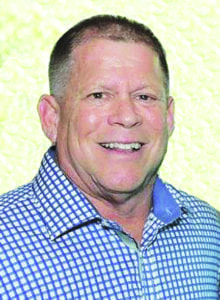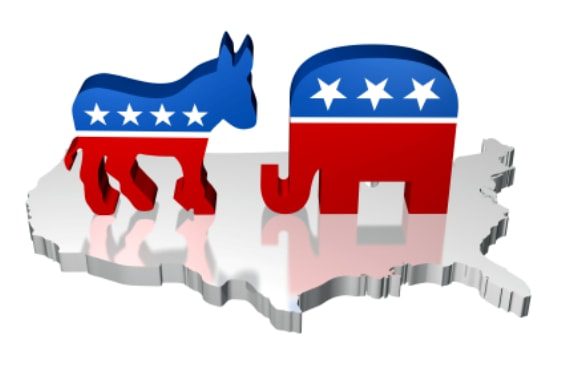
You don’t see old fashioned butcher shops anymore. Everything today comes pre-wrapped, processed at the store.
A lot of grocery chains have meat packed and sealed at a factory in Iowa and then trucked in, but there was a time when a butcher would toss meat up on scale. It also was a common practice for a butcher to put his thumb on the scale, tipping the balance in his favor and charging his customer for nothing.
Our national political parties have adopted this practice, putting their thumbs on the scales to favor particular candidates during the primary season.
The political cliché used to be that Republicans would fall in line behind their party’s preferred candidate, but Democrats had to fall in love.
Closer to home, when Carlos Curbelo announced in 2014 that he was running against incumbent Joe Garcia for his Congressional seat, the Republican establishment immediately fell into line behind him when word went out that they saw him as the candidate with the best chance of unseating Garcia.
It didn’t matter that Curbelo faced Republican candidates like Miami-Dade Commissioner Joe Martinez, Cutler Bay Mayor Ed MacDougall. The establishment wanted Curbello and it got him.
Take the 2016 Democratic Presidential Primary. With Debbie Wasserman Schultz as the head of the Democratic National Committee, the DNC went out of its way to slow the campaign of Vermont Senator Bernie Sanders, according to emails that were leaked.
The perception throughout the campaign that the DNC was in the tank for Hillary Clinton and the email largely bore that out. The result was Clinton got her nomination. (Some might have said it was her coronation.)
The DNC was upset that Sanders didn’t fall in line when it was made clear that she was who they wanted at the top of the ticket.
Sanders’ supporters showed their displeasure when 1 out of 8 of them voted for Donald Trump rather than Hillary Clinton. Twelve percent doesn’t sound like lot, but it had those Sanders/Trump voters voted for Hillary in Michigan, Pennsylvania and Wisconsin, we’d be calling her “Madame President” today.
It’s now 2018. You can feel the strain as party officials want to make sure their preferred candidates get the nomination. That includes Gwen Graham on the Democratic side and Adam Putnam on the Republican side for Governor.
Although millionaire Phil Levine and billionaire Jeff Green can largely self-fund if they have to, Tallahassee Mayor Andrew Gillum has raised less than half of what Gwen Graham has banked and less than a third of what Phil Levine has raised.
In the 27th Congressional District race, the party leaders want former UM president Donna Shalala to get the nod, although Kristen Rosen Gonzalez, David Richardson, Matt Haggman, and Michael Hepburn are in the race.
It’s just as messy on the Republican side of the ledger. There are nine Republicans seeking the nomination, including former Miami-Dade Commissioner Bruno Barriero who resigned early to run for the seat, and former Doral City Councilmember Bettina Rodriguez Aguilera. Other candidates are Elizabeth Adadi, Angie Chirino, Stephen Marks, Michael Ohevzion, Maria Peiro, Maria Elvira Salazar and Gina Sosa.
Some states already have held their primaries. Florida voters who are registered as Republicans and Democrats go to the polls on Aug. 28 to choose their parties’ nominees.
The first instinct of any political campaign professional is to not only tell you what he thinks, but to tell you what you should think, too. The leaders from both the Republican and Democratic Parties in Florida should remain agnostic throughout the primaries.
If they do otherwise, they risk alienating their own voters who will sit out the November election if they perceive the primaries as having been rigged in favor one candidate over all the others.
We went to the political party primary system to stop deals from being made in smoke-filled backrooms and make sure that the voters, and not the parties’ leaders, have the first and best say in who the candidates should be.
If the parties keep their thumbs off the scales and let the process play out fairly, it will ensure that voter turnout will be higher in November. In this case, the Political Poppas, and the Political Mommas, don’t know best.







Comments are closed.